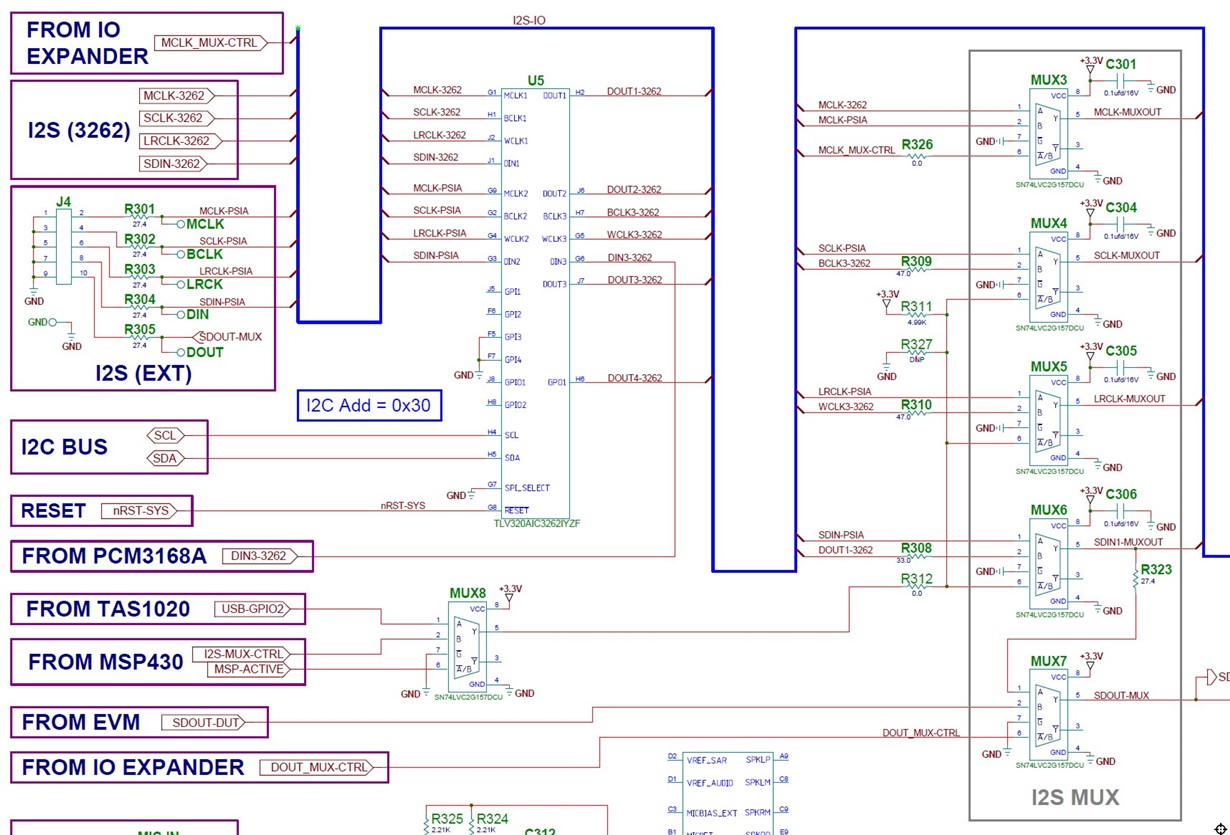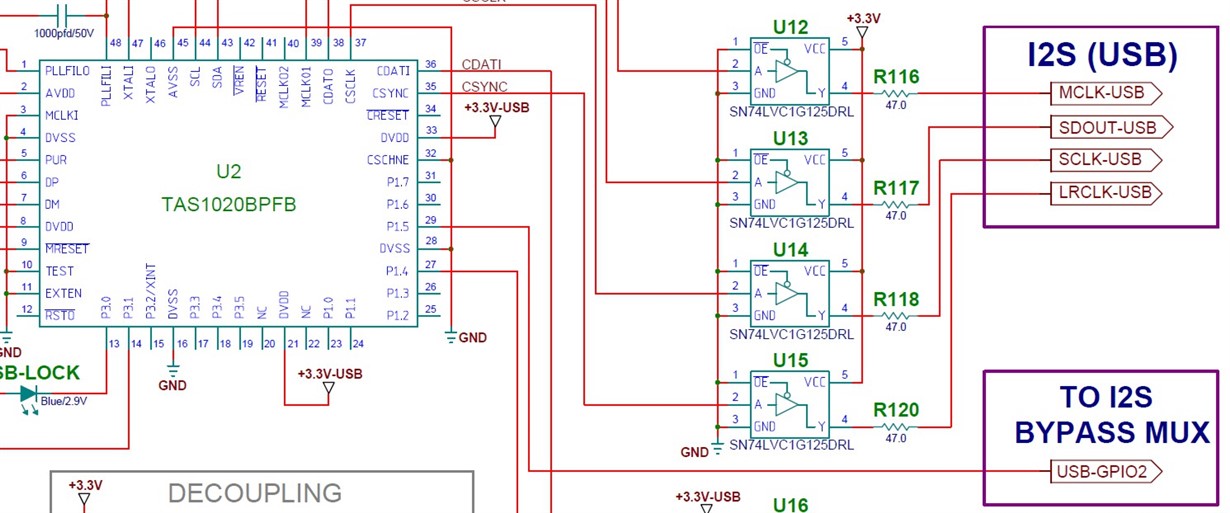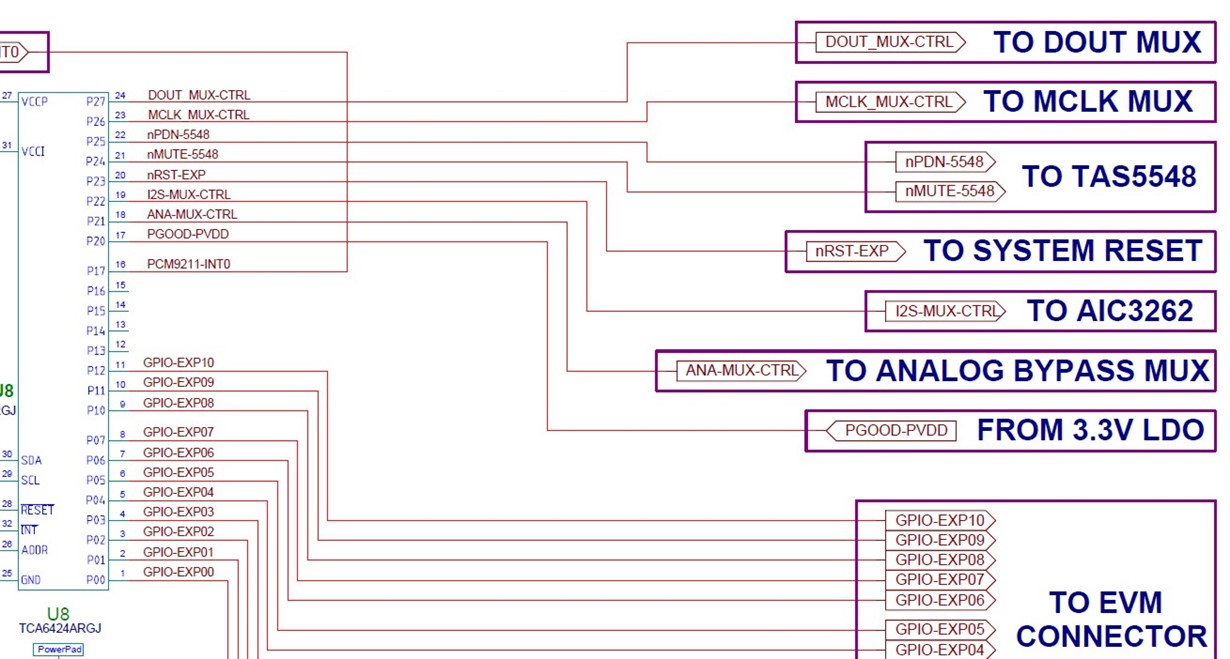Other Parts Discussed in Thread: CC1310, TAS5766M, TAS5805M, PCM9211, CC1312R, CC3200, TAS5780M, TCA6424
Hello.
I come here after discussing this issue in the sub-1 GHz forum.
1. I would like to know if TAS5760M, TAS5766M and/or other TI amplifier model that meets my output power needs (40W in continuous mono operation with a 4 ohm speaker) can accept non-standard audio frequencies generated by the I2S module of CC1310 that are divisors of the 48MHz MCUCLK? (Say these ones: 15625 Hz, 31250 Hz, 37500 Hz, 46875 Hz, 50000 Hz)
2. I have a TAS5760xx EVM and a PurePath Console Motherboard (PPCMB) to test with the CC1310 LaunchPad. If I record some audio files in the PC with those sample rates and play them from the PC to the PPCMB, may I test this capability? Or the PPCMB will adapt the audio over/under sampling it before passing it to the TAS5760xx EVM?
3. If I try to program an audio sample rate into the CC1310 I2S module (say 44100 Hz and a theoretical 1,411,200 BCLK), the real BCLK the CC1310 will output will be: 48MHz / [BDIV=34] = 1,411,764.71 Hz. And the nearest MCLK I can get to the MCLK rate specified in the TAS5760M datasheet using fs x 512 (44100 x 512 = 22,579,200) will be: 48MHz / [MDIV = 2] = 24,000,000 Hz. If I use fs x 128 (44100 x 128 = 5,644,800) it will be: 48MHz / [MDIV=9] = 5,333,333.34 Hz. Would be these BCLK and MCLK valid for the TAS5760M?
If I use TAS5766M instead of TAS5760M:
4. In 3-wire I2S mode TAS5766M will accept the real CC1310 BCLK calculated in previous point 3?
5. If 3-wire mode is not valid to interface with the CC1310, I think I could make TAS5766M work as a clock master and feed the BCLK and RLCLK to the CC1310 I2S module, couldn't I?
6. If I don't need any PurePath Smart Amp capability in the TAS5766M, do I still need the Speaker Characterization Board or I could configure the TAS5766M without it?
7. If TAS5760M and TAS5766M aren't a solution for me, is there another TI amplifier solution that could fit for my needs?
Thank you very much.
Regards,
Juan Pablo Novo





